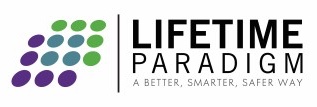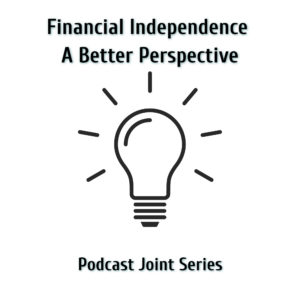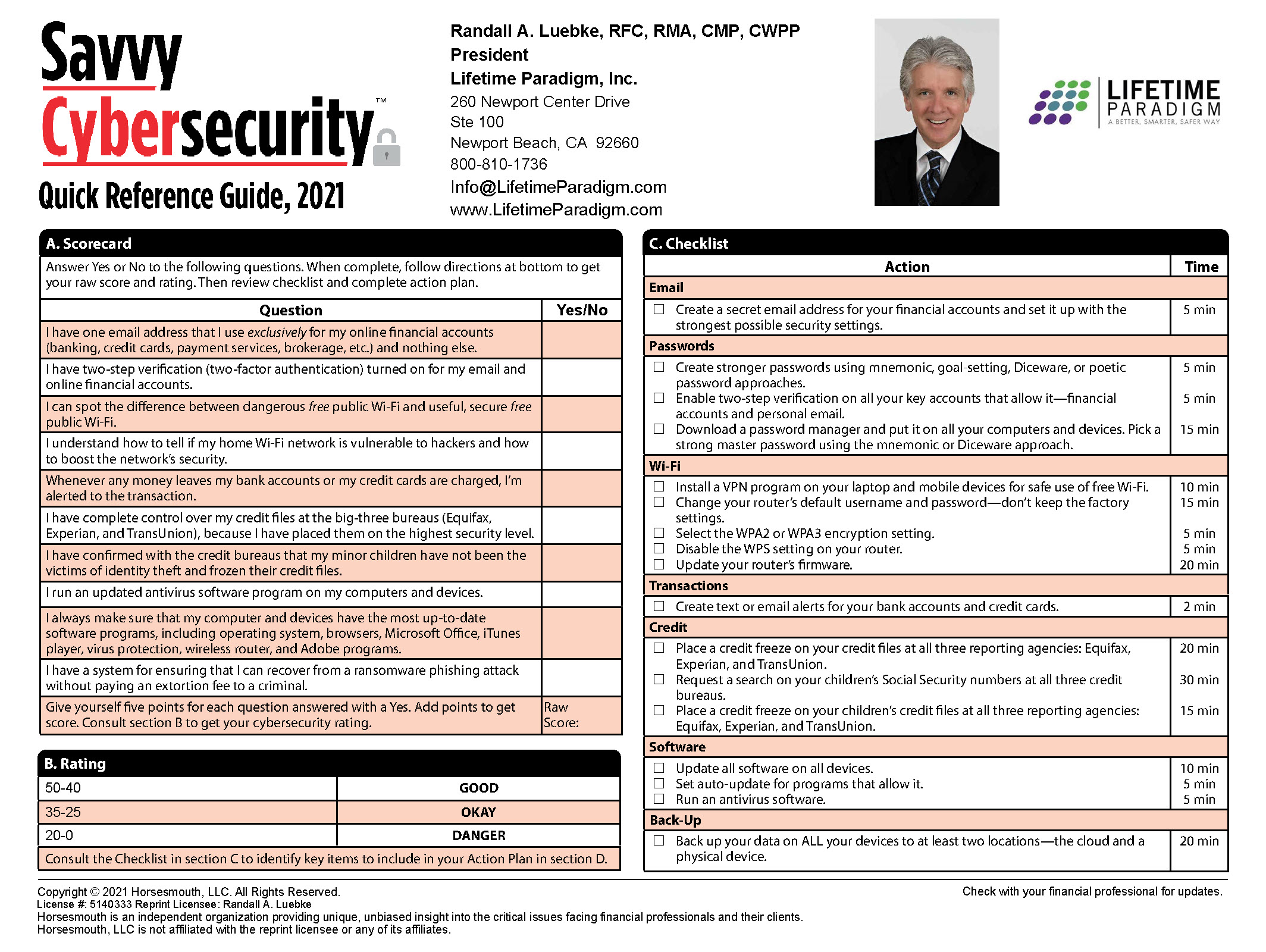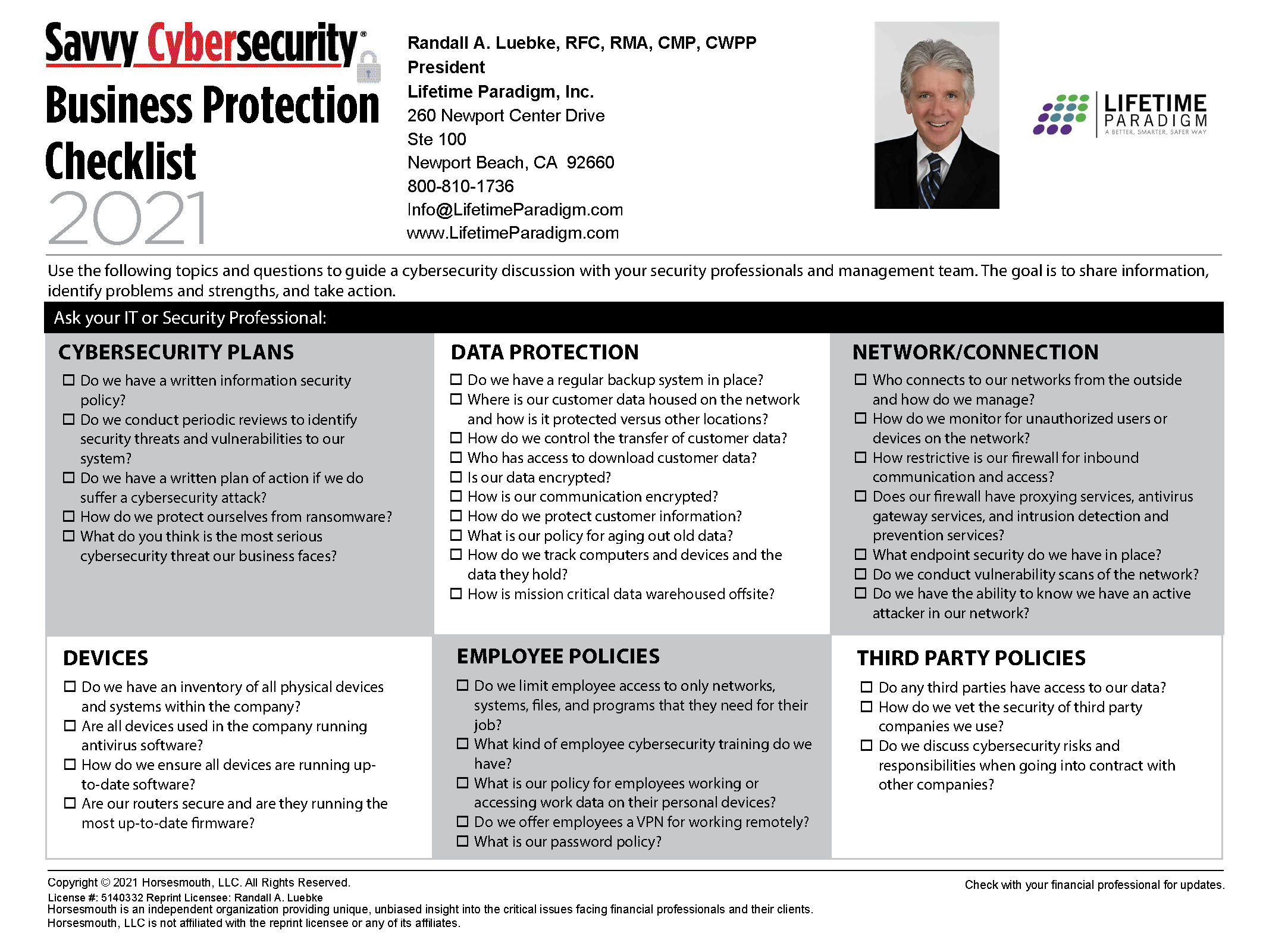Financial Independence
A Better Perspective
Podcast
Episode 2
EPISODE 2 – Working From Home/Cybersecurity
Presented by Lance Edwards and Randy Luebke
In this episode of “Financial Independence – A Better Perspective”, Lance and Randy discuss the current “stay and work at home” environment and the resulting changes in communication that are taking place. In addition, they delve into “Cybersecurity”, which is one of Randy’s areas of expertise. Randy discusses the importance of encrypting your phone and your computer and, why you need strong password protection on everything. They also talk about the evils of Malware and Ransomware and how to combat it.
What you’ll learn in this episode:
- Lance’s entire office is working out of their homes for the first time, while Randy has been doing so for 12 years. Before getting into real estate investing, Lance worked in a corporate office infrastructure. When he started working at home, he had to learn a whole new set of disciplines and habits, dealing with the challenges that arose.
- Randy says that while office interaction is not a factor right now, you can still do a good job and get your work done. We all communicate, just not face to face. Because the workspace is totally different, people are going to have to find other outlets for that personal interaction, whether it’s going out for walks or other ways.
- Lance mentions that in an office environment, the communication is much freer and natural because you can overhear conversations and use body language. Though you lose that in the home office environment, his message has always been that you’ve got to overcommunicate with staff and clients. He sends out a five-minute message to his clients and to his staff in the morning as part of his belief about overcommunicating because of the physical separation. He believes it’s important that everyone have “focus time.” You can’t be in constant interrupt mode all the time. He and his staff develop this practice in the office when they’re together, too.
- Lance talks about his red light/green light innovation. With over 20 people at desks in cubicles, it’s easy for staff to interrupt others while they were working. Lance’s solution was to put a red light/green light apparatus on each desk. Red light means do not disturb me, I’m trying to get something done. Green light means interruptions are okay. With all the potential distraction from roommates or family members while working at home, he suggests having a similar system in the home office. It could be lights – or a simple post-it note that says “busy.”
- Another Lance suggestion: Get away from the TV set. There’s nothing positive on right now, and the onslaught of bad news is going to distract you from work. It’s easy to stop for just a minute and get sucked into more. Make the choice that you will check out the news after you’re done with work for the day.
- Randy, who has years of practice running a home office, makes his space his sanctuary. He recognizes that people have roommates, kids, spouses and other family members living with them who could prove to be distracting. He emphasizes that each person should assess their unique situation and figure out a way to make the home environment work. Another supremely important rule is sticking to a routine and schedule. When you’re not commuting and don’t have the strict 9-to-5 protocol, you have to self-discipline because “you’re structuring your day. You’re in charge of your day. You have nobody over you supervising but you and your conscience.” Having a schedule makes it easier to stick to a plan. Still, allow time for breaks during the day. He says he has a stand-up desk that is much more effective for physical fitness than a sit down one. Lance agrees with the importance of walking around, whether in the house or outside or around the block “to just clear your head.”
- Lance suggests that you dress like you’re at work, even if you’re at home. Business casual is his style. He thinks the whole “make money at your kitchen table in your pajamas” concept is a crock. He agrees with the need for self-discipline and developing a routine. He believes that the work at home office model may become more popular in the future, even if many were dragged into it by COVID-19.
- Randy delves into their next topic, Cybersecurity. He starts with cell phone and laptops, which have tons of personal and client information that needs to be kept private. He sees the internet as a mixed blessing, obviously allowing for personal communication but also dangerous because of hackers who can steal information. If you lose your cell phone, you may have lost a thousand- dollar investment, but the exposed information being out of your control is the deeper problem. He once lost his cell phone at the airport, but he didn’t worry because the phone was encrypted. Randy recalls how successful encryption was when the FBI was trying to crack open the phone of the terrorists involved in the San Bernardino shooting.
- Take the time to encrypt your phone, and have a good password or fingerprint reader. If you have those, it is just a worthless piece of glass to a thief or someone who finds your phone after you misplaced it. The minimum password should have four characters but six is unstoppable. Fingerprint readers are even better.
- Lance mentions to Randy about a Ransomware virus he got on his computer which locked his files until a ransom could be paid. Even an expert told him he was out of luck. Fortunately, he had everything backed up. Randy affirms the value of backups. He suggests you have them in three places to ensure you have a full and secure system. Your original documents and data should be backed up off premises, which is easy today via online backup tools. Randy used a company called CrashPlan. You also need an onsite backup because the offsite ones are slower. You can restore everything in a few minutes vs. a few hours with offline. The one positive about off premise backups is they update everything as you do. To summarize: original, offsite, local.
- Randy loves CrashPlan because he can get a family plan, a single subscription with five computers on it. He, his wife and kids have their data backed up automatically. CrashPlan also has a switch where you can send it to a local device as well.
- Randy says the first rule when you’re dealing with Ransomware is: Don’t pay it! If you’re backed up, you don’t need to engage. He explains the process of phishing, targeted attacks via email that looks like it’s coming from your boss, a friend or service you use. It looks real. Even if you’re getting tons of emails, be vigilant and don’t open attachments just because you assume it came from a trusted source. Another word for the process of trying to deceive you is “spearfishing.”
- According to Randy, experts say that the antiviral software actually makes your computer more vulnerable than if would be without it. For the software to work, they have to go deep into your operating system to protect your computer at a very low level, like as your computer is booting up. The hackers find the same “cracks.” They trick your computer into thinking it’s a different date or time, or by accelerating your CPU for a millisecond. Apple is less vulnerable than Windows because it’s got a smaller universe of users. Microsoft was put a built-in antivirus in Windows 10.
- There are two kinds of “exploits” that are particularly dangerous. One is “zero-day exploit” – the day Microsoft releases a patch on Windows 10. The hackers know that there’s a vulnerability because that’s what the patch is there to protect. They count on people putting off the update. They have these hacks months and years in advance that they don’t share. In the San Bernardino terrorism case, the FBI eventually got in by getting the code from a hacking company. The best thing you can do is practice what Randy calls “good cyber hygiene.” If you’re, for instance, using the default user log in settings on your Microsoft computer, you’re not “brushing your teeth. You’re not washing your hands.” You should use your administrative user only when you want to install or remove software. He believes that Apple’s default user is a restricted user.
- Randy offers a cybersecurity audit via his website. Go to www.LifetimeParadigm.com and search the word “audit.” It’s a one page checklist of things you can do and implement to enhance your security at home, work or anywhere on your computer or phone.
- Randy mentions how on New Year’s Eve, he was alerted to an email address change on his Chase bank account which he didn’t authorize. He got everything solved, but mentions just how quickly the hackers had worked to change his original security settings. He asked the tech if they had two factor ID, and was told they don’t. Randy was annoyed that one of the biggest banks in the world didn’t have this. He recommends that everyone use two factor authentication if it is offered. Password and another form of ID. A good form of two factor authentication, if a company offers it, is Google Authenticator or Microsoft Authenticator. They change your password every 20 seconds.
IMPORTANT
The information contained in this newsletter is for general use and educational purposes only.

Big Tax Changes to Know for 2024
Financial Guides2024 has brought some big tax changes with it. It’s essential to stay informed about these...
The Smart Tax Planning Newsletter March 2024
Tax PlanningIn This Issue: IRAs for Young Adults Get Up to $32,220 in Sick and Family Leave Tax Credits New Crypto Tax...
2024 Key Planning & Investment Deadlines for Q2
Financial GuidesSpring is coming and to keep you financially organized for Q2, we are providing you with our Spring...









